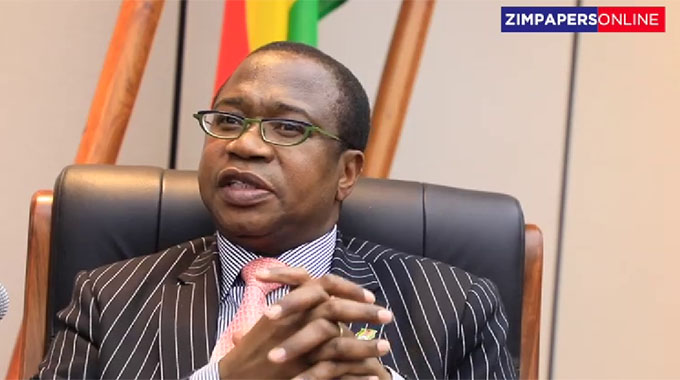LAST May, Finance minister Mthuli Ncube, announced a new and second bourse for Zimbabwe, the Victoria Falls Stock Exchange (VFEX), which will trade exclusively in foreign currency.
Based in the resort town of Victoria Falls, the bourse is a subsidiary of the Zimbabwe Stock Exchange (ZSE).
The VFEX has already been registered with the Securities Exchange Commission of Zimbabwe (SECZ) and its operations are defined through Statutory Instrument (SI) 196 of 2020, which provides that entities, which raise funds on the platform must reinvest or use 20% of what they raise in Zimbabwe within a period of five years.
There is hope that the allure of Victoria Falls, a world-renowned tourism centre, will assist to attract global capital to Zimbabwe.
Another plus for the new baby is that Victoria Falls is in a special economic zone, meaning that the bourse will not be encumbered by rigid regulations. And this is vital to attract external participation by traders.
The stock exchange is meant to allow easier repatriation of foreign capital. This would prove handy since, on the ZSE, investors have been struggling to repatriate their investments back home.
Australian mining company, Arcadia Resources, and some 80 other entities want to list on the VFEX and this is a step in the right direction for the soon-to-be-launched platform.
The Zimbabwean government has said it would want to raise funds to compensate displaced farmers through bonds that would be sold on the VFEX. The possibilities are limitless. But that does not mean the road will be easy.
Good management of this second stock market is set to create jobs, new enterprises and a relatively lively economy. But then, how can the new stock market yield maximum results?
The ZSE has for a long time suffered the downstream effects of harsh macro-economic conditions like the hyperinflation that peaked in early 2009 just before a coalition government and official dollarisation, and brought with it restrained capital inflows as well disruptions to trading.
From April 2009, there was a surge in investment, which peaked at around US$26 million per month in 2013, but has slumped to a meagre US$1 million a month in 2020 on average. The VFEX, therefore, represents a reset button, which would attract foreign-denominated capital once more and help solve the forex scarcity burdening the ZSE and the local economy.
The VFEX should aim at launching initial public offerings of companies as this would contribute significant value to the Zimbabwean economy. A chance must be given to the enterprise which is ground-breaking and provides an opportunity for job creation and enhanced economic activity.
Administrative and marketing excellence will largely determine the success or failure of the VFEX. The new stock exchange should make it cheaper and more efficient for investors to trade. Settling accounts must not take too long, and fees involved must be kept as low as possible while operating technology and systems must ensure maximum security, speed, transparency and efficiency.
You can never overestimate the importance of marketing for a bourse that is looking to harness global capital, so effective messaging models need to be adopted, refined and sustained.
There must also be proper management and handling of the equity market, risk management, post-trade services and data provision while ambitious yet achievable goals must be set.
The VFEX can even consider turning itself into a gateway into the southern African region and beyond for investors, whose aims are as broad. And there is no room for complacency.
Regulatory authorities must responsibly oversee activities of companies on the VFEX and give regulatory guidance as and when required.
Providing investors with options to invest in more sectors of the economy apart from mining through the VFEX should attract more investments. Agriculture and other economic sectors have to be seriously considered for participation on the VFEX.
Zimbabwe has a chance to further diversify the economy with the coming in of the new bourse. Diversification is important especially in these times of weak global demand due to national and cross-border lockdowns.
Mining entities may, in fact, have fewer takers on the stock market, particularly as compared to agriculture-based enterprises. This is due to the fact that a weakened global economy implies weak demand for minerals and related commodities.
In this regard, it becomes vital to encourage agricultural entrepreneurship and launch it on platforms with international reach like VFEX is likely to become. Other sectors which support import substitution, value-addition and beneficiation of resources must be given priority too. The VFEX must be properly designed, branded and regulated in a way that will make it a global player of note.
The successes that the VFEX would record can work towards removing the detrimental perception of Zimbabwe being a risky investor destination and revitalise the local financial markets.
Since there is currently no market for international bonds in Zimbabwe, the new bourse would help open up opportunities towards that. The international bond market must be resuscitated, no doubt, while considerations must be made to hasten activity on the money and locally developed derivatives markets.
In the past, the ZSE has demonstrably failed to anticipate hazards and disasters on the bourse, at times making costly omissions that have tended to cause debilitating fluctuations in and disruptions to trade.
In November 2008, the local bourse had to shut down for approximately three months owing to speculative buying that was driving stock prices up steeply and fraudulently crowding other players out. This demonstrates that the stock market was lacking proper oversight and scrutiny.






